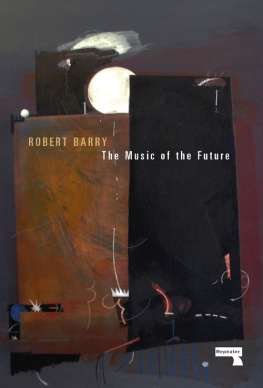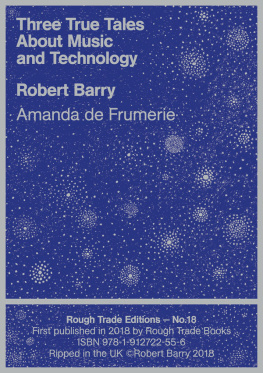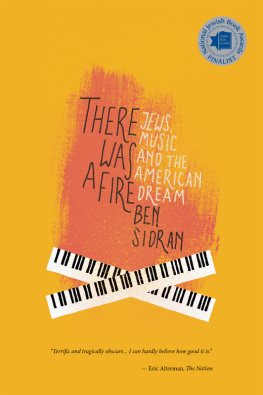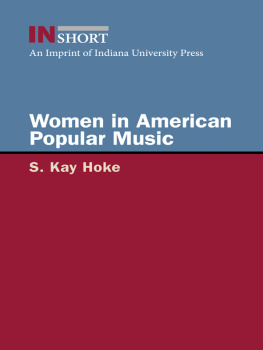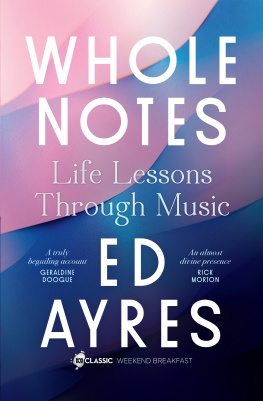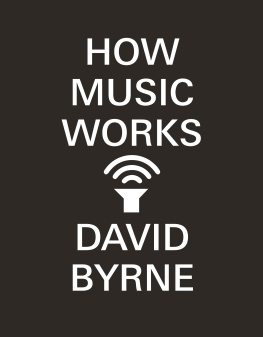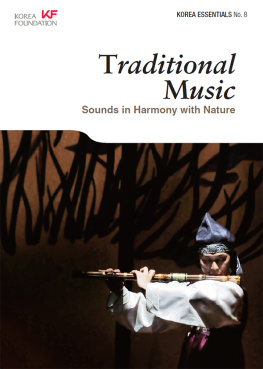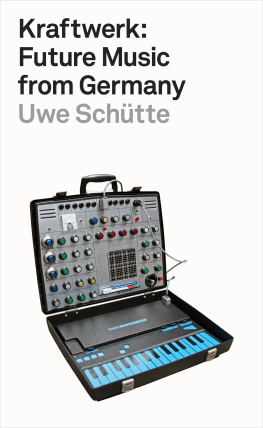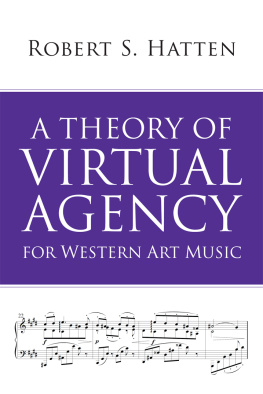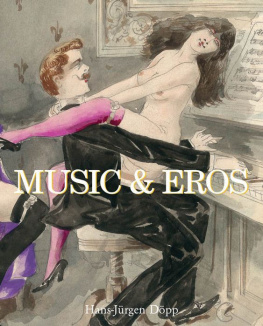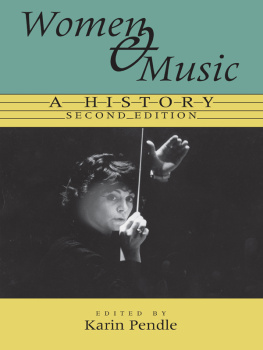The Music
of the Future
The Music
of the Future
Robert Barry

for Thanh Mai
Prelude: 2016
Its about a quarter to eleven on the third of May and Im at a bar in Zagrebs Studentski Centar. Built in the mid-Thirties for the citys international economic exhibition, since 1957 the complex has acted as a cultural hub for the University of Zagreb. Eighty years ago, the atrium in which Im standing, along with the &TD Theatre by its side, were part of the trade fairs Italian Pavilion, designed in jutting modernist concrete blocks by the Florentine architect Dante Petroni. Today, it is playing host to another kind of festival: Izlog Suvremenog Zvuka, the Showroom of Contemporary Sound, a week-long programme of concerts, talks, and art installations bringing together cutting-edge composers and improvisers from throughout the world.
Over the next few days, I will see and hear artists determinedly pushing at the limits of music from all directions, scoring flickering choreographies of light bulbs, dancing oblique high-wire semaphores with the buzz and fizzing of tasers, collaging the quotidian noises of the city into a propulsive soundscape made magical by the transformative powers of digital manipulation. But right now, we are in a gap between gigs. Im sipping from a bottle of beer and talking to a local computer programmer and PhD candidate called Antonio Poi. Inspired by the concert that just finished, weve got into a deep conversation about writing, music, and code. Hes here to review the festival for a blog about free jazz; Im here because earlier this afternoon I gave an hour-long, rather rambling, and only occasionally coherent lecture entitled The Music of the Future.
In my lecture at the Academy of Music across town, I had tried to trace a line from an article published in 1852 that fingered Robert Schumann, Hector Berlioz, Franz Liszt, and Richard Wagner as literary musicians, occupied equally with writing critical texts about music as they were with writing music itself, to contemporary composers like Holly Herndon and Jennifer Walshe, who are engaging the transformative potential of the internet through the music they write and the statements they make about that music. I wanted to plot the points of a kind of speculative continuum, in which reflection about music, in and through the most important media of the day (from mass publishing to the world wide web), was wielded as a tool to reshape musical practice and carve out a path towards the future of the art form.
But having made the possibly ill-advised decision to talk from memory, without a script or even so much as a hastily scribbled note, and a little nervous about speaking in an academic context quite apart from my usual habitat of pop-culture websites and glossy magazines, I had ended up veering about a little chaotically from one idea to the next, descending into long tangents and looping back to key points I had neglected to cover earlier in the speech. Afterwards, people told me it had been interesting, if not always totally understandable.
I was even less prepared for the questions that followed. Not so much those from the audience at the lecture itself. They were fine. Smart, interesting, challenging, engaged, and few in number. All good. What caught me off guard was the on reflection, probably inevitable line of questioning from people who hadnt come to the talk itself but had simply taken its title at face value.
I soon found myself in the middle of an interview with the Croatian national broadcaster, a mic thrust at my face. The disarmingly cordial interviewer smiled asking, What will be the future of music?
Im not a fortune-teller, I started to protest. What Im interested in, really, is the way composers in the past have used the idea of the future to effect changes in the way people think about music that we can still feel today. And already I can sense a certain look stealing onto the face of my interrogator. Its a look that, as a journalist myself, I recognise well. It says: how am I supposed to make a bloody headline out of that?
But talking to Antonio in the bar on the night of the lecture, full of the confidence of that second (or was it third?) bottle of Ozujsko, it suddenly occurs to me how to express the point I was trying to get across in my presentation earlier in the day. I cut my new friend off mid-sentence, rather rudely, and start yabbering at him like a cattle auctioneer on a first date.
I think what I was driving at, earlier, I start to say, is some idea of a music that would be sufficiently self-conscious to work as criticism and, by extension, I suppose, a kind of criticism that could at least aspire to some of the qualities of music.
Antonios brow furrows slightly at this. I plough on regardless. The important thing about composers like Wagner and Liszt is not just the music they made, but all the various fictions circulating around that. That stuff isnt getting in the way of a proper understanding of some supposedly real or authentic Wagner its actively producing all sorts of interesting directions of its own. We need people whether critics or composers or other artists to make these kind of stories and confabulations up, to make mistakes and get things wrong. People should be abusing each others work, jamming it up against things it wasnt supposed to go anywhere near just as wed expect artists to use technology in ways it wasnt intended for, against the grain of its manufacturers intentions because often thats where new ideas and new directions come from, from failure and misuse, and general misapprehension.
The next day Antonio emails me a quote from Tom Arthurs thesis, The Secret Gardeners: An Ethnography of Improvised Music in Berlin (201213): Despite a small selection of dedicated online blogs and specialist publications, Arthur writes, criticism was on an extremely small scale, and many musicians lamented the abysmal quality of journalism few musicians looked to critics for input into their work, with very few following the press on a regular basis, and most taking the opinions of their colleagues more seriously.
Well, I write back, a little tongue-in-cheek, we cant expect every critic to be a great artist Then again, maybe the musicians were wrong they resented the local journalists for misinterpreting their work. But in the end, maybe the fiction is more important than the reality.
There is a short story by Ray Bradbury called The Toynbee Convector. First published in Playboy magazine in January 1984, it describes the visit of an eager young journalist to interview an old man, known as the Time Traveller. A century before, this Time Traveller had apparently returned from the future from, in fact, the storys own present day. He had seen the future, he claimed, and it was bright. He even brought with him samples, tapes and lp records, films and sound cassettes as proof of the golden tomorrow he had glimpsed from a machine of his own invention.
Inspired by his evidence, the people of the world had built the very future he promised. They had rebuilt the cities, freshened the small towns, cleaned the lakes and rivers, washed the air, saved the dolphins, increased the whales, stopped the wars, tossed solar stations across space to light the world, colonized the moon, moved on to Mars, then Alpha Centauri.
The day of the young journalists visit is the anniversary of that auspicious journey to tomorrow, the very day he was said to have transported himself into, a century ago. As a crowd gathers outside to await the appearance in the sky of the Time Travellers younger self, he finally admits the truth: I lied.
Yes, Antonio says to me when I mention Bradburys story. I get your point. Its important to believe and continue talking about these ideas. Otherwise we might get stuck in a loop of negative feedback, a self-fulfilling prophecy of sorts. That is to say, a utopian vision of music criticism needs to exist before it can begin shaping music.
Next page
